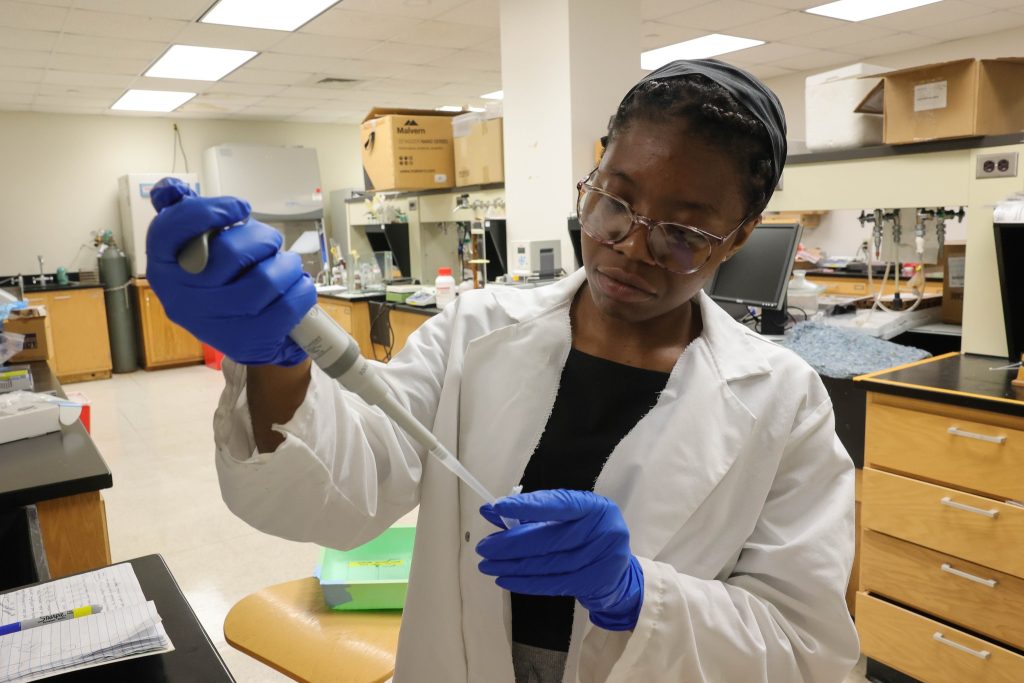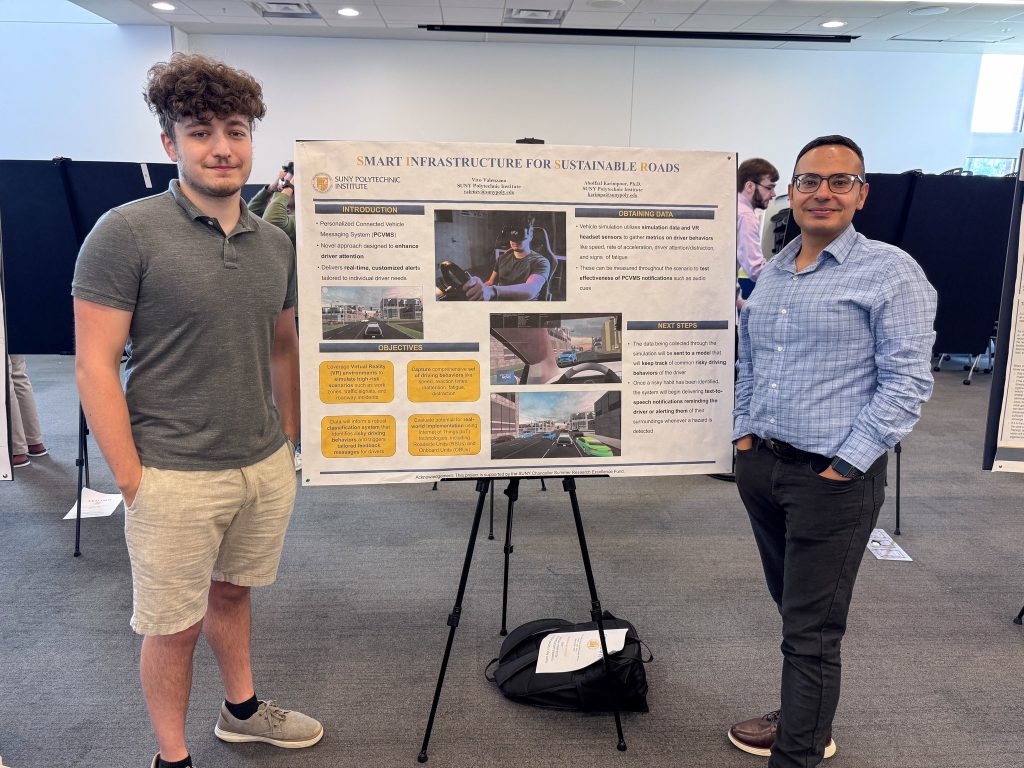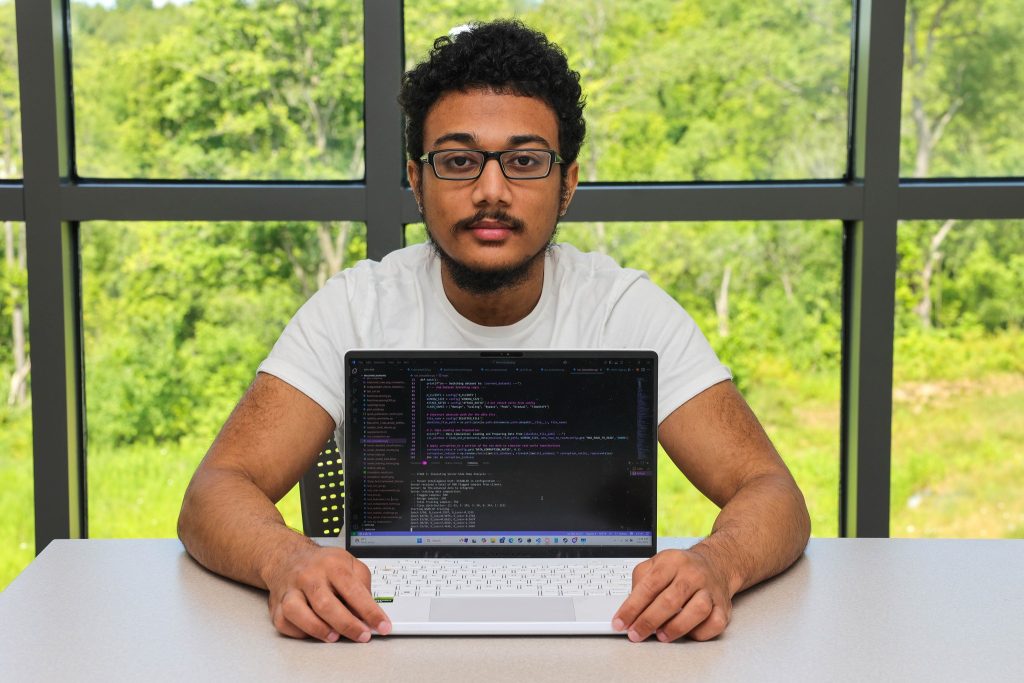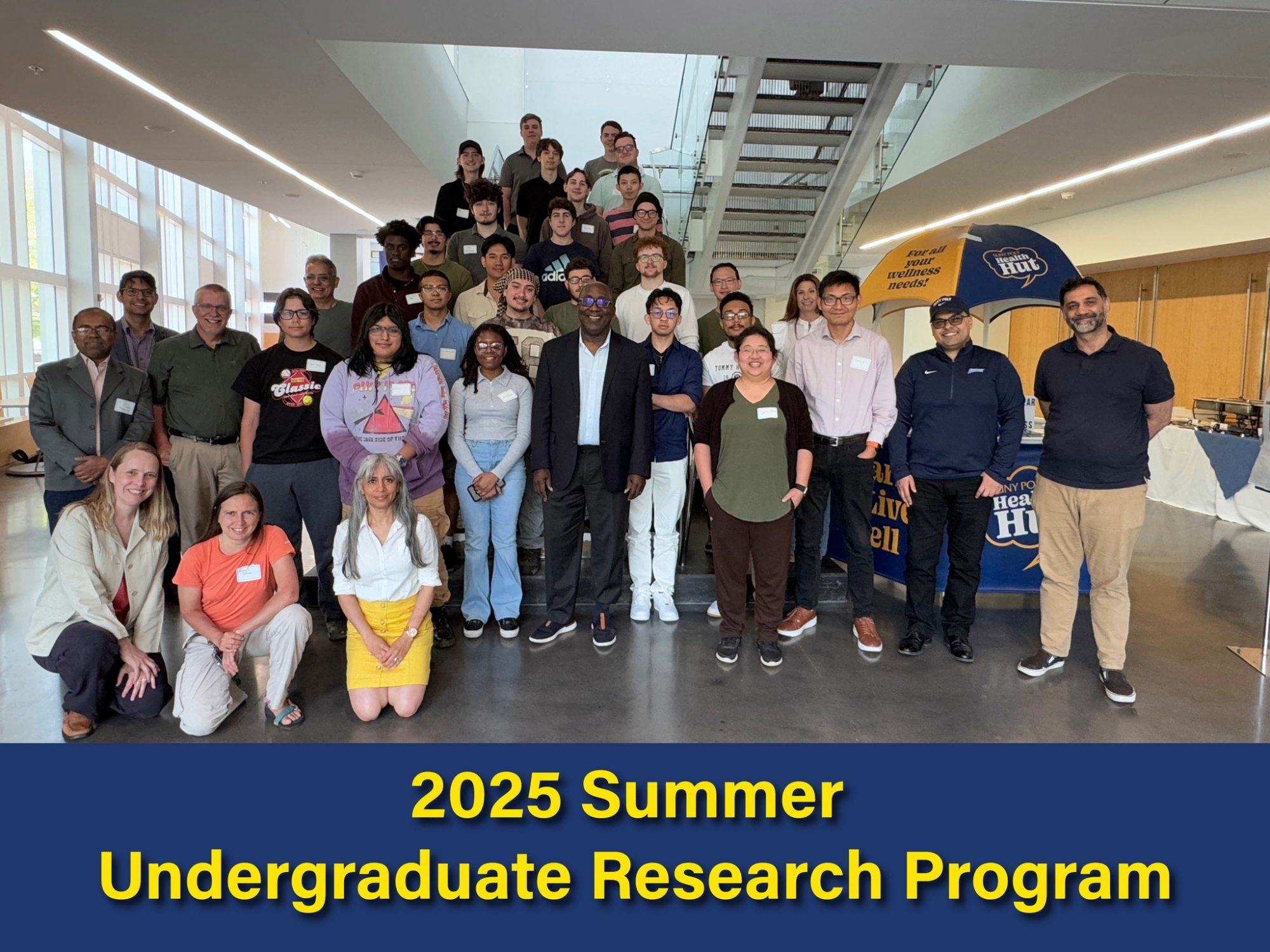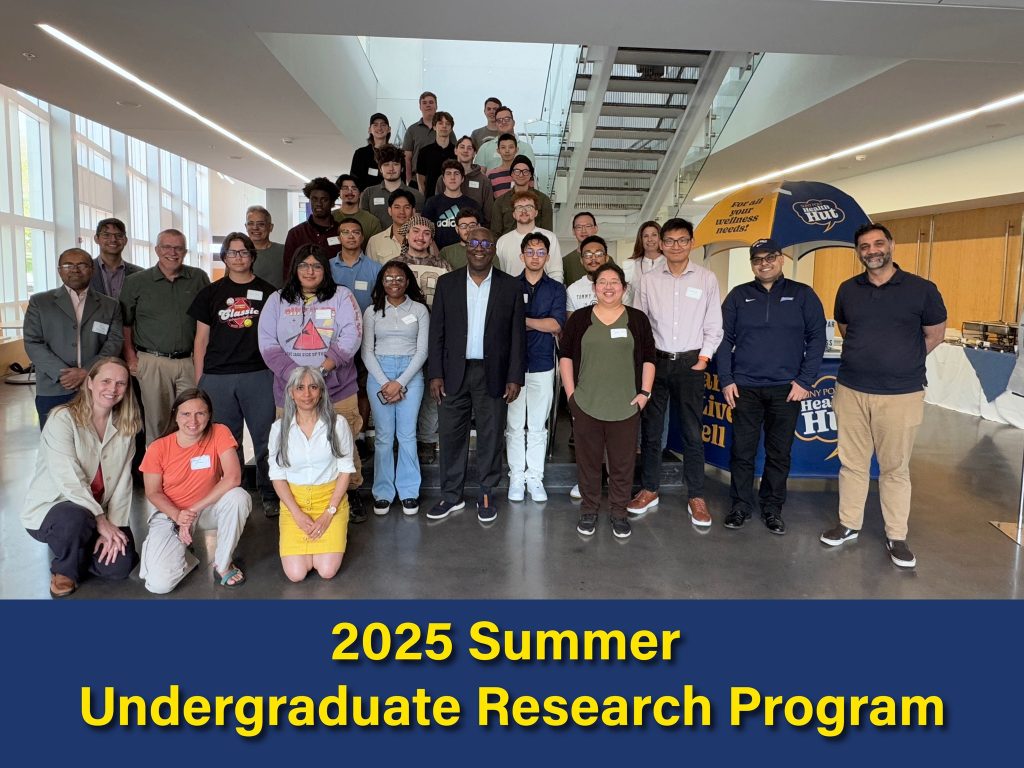
This summer, 24 SUNY Poly students took part in the 10-week Summer Undergraduate Research Program (SURP), which pairs qualified undergraduates with faculty mentors for hands-on research across a wide range of disciplines—including artificial intelligence (AI), cybersecurity, biology, mathematics, physics, psychology, and engineering.
Supported by the SUNY Chancellor’s Summer Research Excellence Fund, the SUNY Poly Provost’s Office, state funding, and industry partners, SURP offers students an invaluable opportunity to deepen their expertise, gain new skills, and contribute to real-world problem-solving. This year’s program was coordinated by Dr. Shing Chi Leung and Marye Ianno from SUNY Poly’s College of Arts and Sciences.
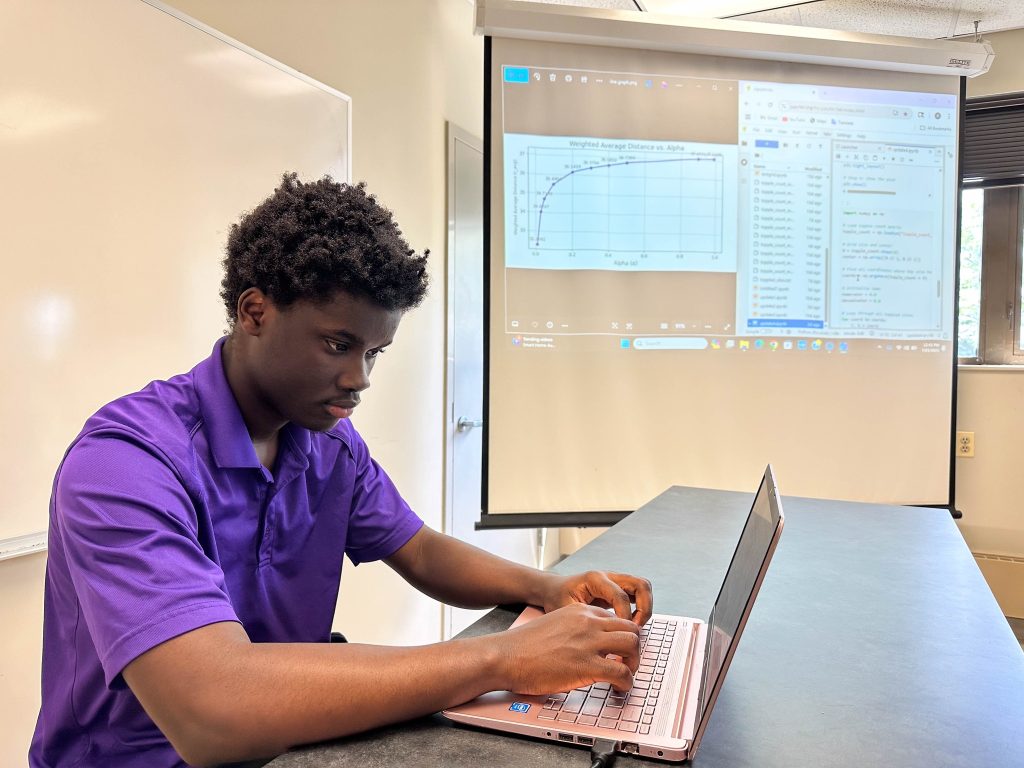
Student Perspectives
- Krish Khatri collaborated with Dr. Catherine Cottrell to analyze stigma. “There is a goal, but I can use my perspective and creativity in the research process,” Khatri says, noting how much he values the freedom to explore ideas.
- Marie-Jinoue Plantin, working with Dr. Pallavi Gupta-Bouder, studied the effects of PFAS on seed germination. “It has been a great experience,” she says. “I didn’t realize how much it would overlap with my Biology major.”
- Pierre-Alain Gbalou simulated earthquakes and avalanches using Python programming under the guidance of Dr. Shing Chi Leung, research that could help predict when such events might occur. “I learned new skills and programs like Python, which is extremely relevant to my mechanical engineering major.”
- Noa Lolona Haro, paired with Dr. Steve Schneider, co-director of SUNY Poly’s AI Exploration Center, helped build a workbench to integrate AI tools into the daily work of students and faculty. “It’s been a big learning curve, but that’s what makes it fun,” Haro says. “I’m getting better at coding and discovering things I didn’t know AI could do.”
- Ariel Cruz worked with Dr. Mahmoud Badr to investigate smart meters and how they have been manipulated in cases of electronic theft. “It’s taught me a lot about machine learning,” he says, adding that he enjoyed studying different papers and technologies to learn how to apply them.
Collectively, these experiences reflect SUNY Poly’s commitment to fostering hands-on learning that empowers students to push boundaries, solve real-world problems, and shape the future of their fields.
